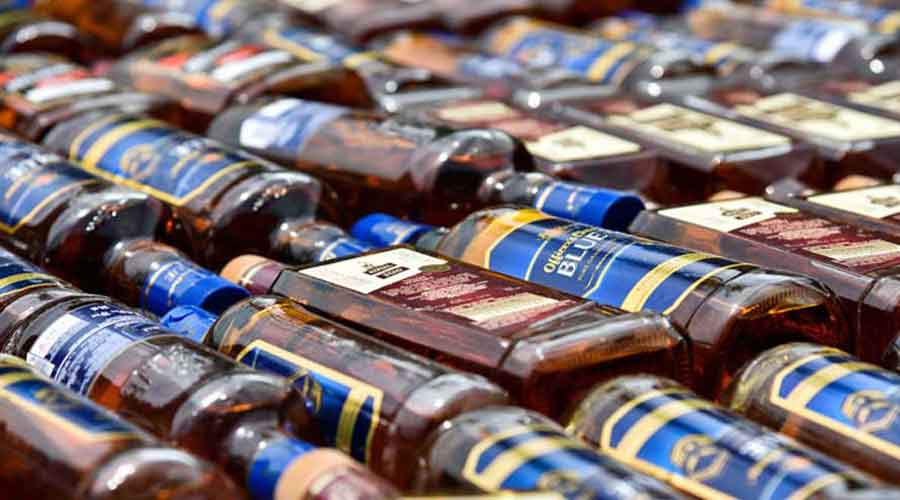Sour lemons
Sir — Summers, especially in the tropics, are incomplete without lemons. A tall glass of nimbu pani can be both refreshing and healthy. Alas, with a single lemon retailing at Rs 10 or even Rs 15 across the country, lemon prices are squeezing household budgets. Such is the demand that after petrol, lemons were recently gifted as a wedding present. Reportedly, the supply of lemons has fallen due to a decline in overall production. But wastage of food products because of inefficient post-harvest practices is an important factor behind high food inflation in India. The government must build proper storage facilities.
Kanishka Sanyal,
Calcutta
Maternal care
Sir — Every year, April 11 is observed as National Safe Motherhood Day to highlight that pregnant women need access to proper prenatal and postnatal care. This year’s theme was protecting pregnant women and new mothers from the Covid-19 virus. The pandemic significantly affected healthcare systems, resulting in an increase in maternal deaths and stillbirths across the world. According to a study published in The Lancet Global Health journal, there was a 28 per cent increase in the odds of a stillbirth and more than 30 per cent of mothers faced a risk of dying during pregnancy or childbirth.
In India, there was a 27 per cent drop in pregnant women receiving four or more antenatal check-ups, a 28 per cent decline in institutional deliveries and a 22 per cent fall in prenatal services. This is worrying. The virus has taken focus away from important health issues. Progress made on key aspects of healthcare like the maternal mortality rate must not be allowed to suffer owing to the pandemic.
Jayanta Ghosh,
Calcutta
Hot flash
Sir — In early April, people and animals across large swathes of India and Pakistan were gasping in temperatures that exceeded 43 degrees Celsius and a dry wind from the desert was searing the plains of Indus and Ganga river basins. The early heatwave was particularly gruelling for those fasting during the holy month of Ramazan — believers do not even drink water between sunrise and sunset — and the Hindu holy period of Navratri.
Scientists classify heatwaves as one of the earliest and most obvious impacts of climate change. This year’s early heatwave has come as the average global temperature stands at 1.17 degrees Celsius higher than in 1850, at the start of the Industrial Age. According to a 2021 study, deadly heat stress conditions might become common across South Asia even at 1.5 degrees Celsius warming. Countries like India and Pakistan should thus set aside their political differences and come together to protect the poorest of the poor who will bear the brunt of such climatic extremes.
Rohan Das,
Calcutta
Sir — Extreme heat exposures are increasing because of climate change. These pose a health and environmental emergency for the people of India. However, early warning systems and coordinated responses to protect vulnerable populations can save lives. The government should invest in such initiatives.
Gopali Roy,
Calcutta
Lacking nuance
Sir — Tribal people practise customs that the so-called civilized society finds difficult to accept. Child marriage, for instance, is common in some of these communities. There are ceremonies attached to each practice, sanctified by religion. Because of the conflict between some of these traditional practices and the law of the land, tribal people often unwittingly end up in jail. The Protection of Children from Sexual Offences Act is a landmark legislation, which was enacted to protect children from sexual offences.
However, the law fails to make room for consensual relationships or validated marriages in some communities. Many tribal people do not keep records of their date of birth. Some of them marry when they come of age and usually have children before they reach the legal age of marriage. As a result, tribal boys are arrested and prosecuted. The law needs to take into account the nuances of culture. Blind implementation of the letters of the law is not in the interests of the people.
Yashodhara Sen,
Calcutta
Matter of choice
Sir — The Left Democratic Front government in Kerala recently allowed the sale of legal alcohol in “specially designated areas” in IT parks in response to the industry’s grievance that techies lack venues to socialize with alcohol where they can unwind after work. It stated that such amenities were imperative to attract foreign investment. The Congress-led United Democratic Front has portrayed the new policy as an attempt to liberalize the production and sale of hard liquor. It has alleged that powerful business interests have capitalized on the LDF government’s over-dependence on liquor taxes.
Prohibition has failed globally. Slashing the supply of legal liquor without reducing social demand is no panacea for addiction as people could turn to illicit sources. It robs the government of revenue and people of the freedom of choice. The government and the Opposition should engage in a constructive legislative debate on the new policy. Unrest over the new policy is not something that Kerala can afford now.
S.A. Siddiqui,
Kochi
Parting shot
Sir — As India sees a steady slump in its daily coronavirus count, the Centre has announced opening up the third or precautionary dose to everyone over 18 years of age. The demand for Covishield and Covaxin will rise. The experience of the past two years suggests that there will be shortages. The State must ensure that there is ample vaccines for everyone.
Kakoli Das,
Calcutta











